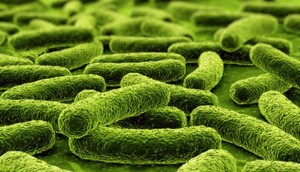IFR to collaborate with Jiangnan
 The UK’s Institute of Food Research and Jiangnan University have collaborated to initiate a UK-China Joint Centre for Probiotic Research.
The UK’s Institute of Food Research and Jiangnan University have collaborated to initiate a UK-China Joint Centre for Probiotic Research.
The centre builds on long term collaboration between Professor Chen Wei at Jiangnan University, and Professor Arjan Narbad at the IFR, which receives strategic funding from the Biotechnology and Biological Sciences Research Council (BBSRC).
After several years of reciprocal visits between the two, exchanging knowledge, training and expertise in probiotics research, the Newton Fund has now provided £250,000 to support a Joint Centre of Probiotic Research with equivalent funding by Jiangnan University.
“We are very pleased that the Newton Fund has been able to support the joint centre,” said Professor Arjan Narbad, “as it will allow us to strengthen ongoing collaboration and advance our interest in both fundamental and applied research focussing on the gut bacteria.”
A meeting held at IFR on the Norwich Research Park marked the inauguration of the joint centre, which was attended by Professor Chen Wei, Dean of School of Food Science and Technology in Jiangnan University and his colleagues Professor Chen Yong-Quan, Dean of School of Medicine, Professor Zhang Hao and Professor Mao Jian. They were joined by Zhang Si, Director of the South China Sea Institute of Oceanology and Professor Richard Mithen, Head of IFR’s Food and Health Research Programme.
“The joint research via Newton Fund will accelerate our multidisciplinary efforts on probiotics but will also allow development of further collaborations in food research that is strategically relevant to both IFR and Jiangnan University,” said Professor Wei.
The joint centre will be based both in IFR and in the planned National Engineering Research Center for functional foods in Jiangnan University. It will allow the researchers to work together to tackle challenges facing both China and the UK in the probiotic arena, and joint research projects are planned with funding from both Chinese and UK sources.
The collaborative working is said to be already bearing fruit. Several joint papers have been published with the latest one in in the journal Applied Microbiologyand Biotechnology that describes the development of a probiotic to alleviate the symptoms of metal toxicity, specifically aluminium.
Other collaborative projects are looking at developing probiotics to help counter the issue of antimicrobial resistance.
































